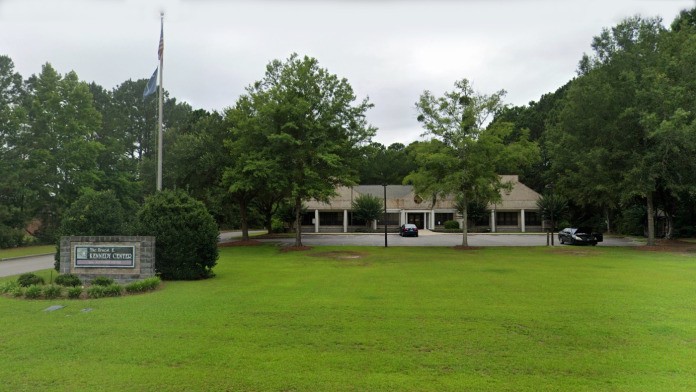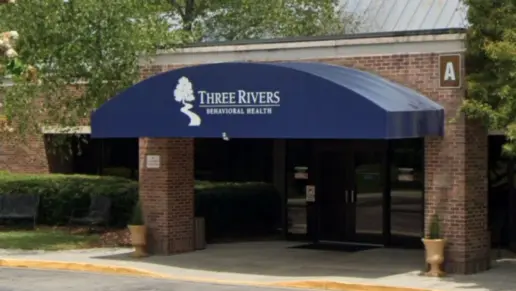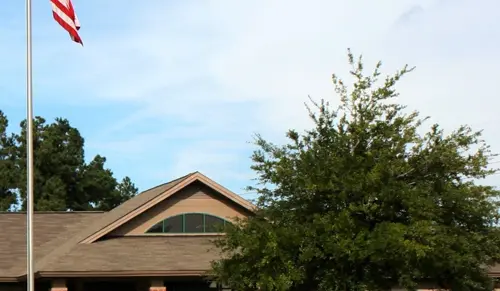They never have time to offer you treatment and when they do it's all about the money. I believe they don't have a shred of compassion for the people they offer treatment to. Horrible center, go somewhere else!
About The Ernest E. Kennedy Center
The Ernest E. Kennedy Center is a non-profit agency that offers behavioral health care services to adults and adolescents in Moncks Corner, South Carolina. Their goal is to provide behavioral health counseling to all individuals regardless of national origin, gender, race, religion or disability. Some of the services at this location include adult services, medication-assisted treatment (MAT) and adult drug court.
They also offer a variety of prevention programs and services to assist members of the community. The Life Skills program provides evidence-based substance abuse education to elementary, middle and high school students in an effort to decrease substance abuse among youth.
The MAT program can help individuals who have addictions to alcohol or opioids. The treatment given in this program is a combination of medication and counseling. The center uses Antabuse, Suboxone, Vivitrol and naltrexone. Medical providers will work with clients to determine which option is best for them. Individuals can get started by calling the front desk to schedule an assessment. Grants may be available to assist with paying for these services if clients don’t have insurance.
The facility focuses on providing substance abuse treatments based on the latest research available. Some of the treatment interventions provided are recreational therapy, mindfulness practices and craving management techniques.
Other topics that are focused on in treatment are nutrition and exercise. One of the main therapeutic approaches they’ll use to help clients is cognitive behavioral therapy (CBT). It’s designed to change thinking patterns that are causing addictive behaviors. These services are offered in the intensive outpatient program, where clients will meet at the facility for a minimum of nine hours a week.
Latest Reviews
Gallery

Location
Accepted Insurance
Other Forms of Payment
Private insurance refers to any kind of healthcare coverage that isn't from the state or federal government. This includes individual and family plans offered by an employer or purchased from the Insurance Marketplace. Every plan will have different requirements and out of pocket costs so be sure to get the full details before you start treatment.
Self-pay involves paying for treatment out of your own pocket. You can use savings or credit, get a personal loan, or receive help from family and friends to fund your treatment. If you don't have insurance or your insurance plan doesn't cover a specific program, self-pay can help ensure you still get the care you need.
Financial aid can take many forms. Centers may have grants or scholarships available to clients who meet eligibility requirements. Programs that receive SAMHSA grants may have financial aid available for those who need treatment as well. Grants and scholarships can help you pai for treatment without having to repay.
Sliding scale payments are based on a client's income and family size. The goal is to make treatment affordable to everyone. By taking these factors into account, addiction recovery care providers help ensure that your treatment does not become a financial burden to you or your family, eliminating one barrier to care.
Medicaid is a state based program that helps lower-income individuals and families pay for healthcare. Medicaid covers addiction treatment so those enrolled can use their coverage to pay for rehab. When a program accepts Medicaid the client often pays very little or nothing out of their own pocket.
Addiction Treatments
Levels of Care
Treatments
The goal of treatment for alcoholism is abstinence. Those with poor social support, poor motivation, or psychiatric disorders tend to relapse within a few years of treatment. For these people, success is measured by longer periods of abstinence, reduced use of alcohol, better health, and improved social functioning. Recovery and Maintenance are usually based on 12 step programs and AA meetings.
Choosing a drug rehab in South Carolina helps you overcome drug dependency, learn how to manage cravings, and obtain the tools needed to prevent relapse. This is accomplished through individualized treatment that addresses a full spectrum of physical, social, and emotional needs.
Many of those suffering from addiction also suffer from mental or emotional illnesses like schizophrenia, bipolar disorder, depression, or anxiety disorders. Rehab and other substance abuse facilities treating those with a dual diagnosis or co-occurring disorder administer psychiatric treatment to address the person's mental health issue in addition to drug and alcohol rehabilitation.
Opioid rehabs specialize in supporting those recovering from opioid addiction. They treat those suffering from addiction to illegal opioids like heroin, as well as prescription drugs like oxycodone. These centers typically combine both physical as well as mental and emotional support to help stop addiction. Physical support often includes medical detox and subsequent medical support (including medication), and mental support includes in-depth therapy to address the underlying causes of addiction.
Substance rehabs focus on helping individuals recover from substance abuse, including alcohol and drug addiction (both illegal and prescription drugs). They often include the opportunity to engage in both individual as well as group therapy.
Programs







Clinical Services
Cognitive behavioral therapy (CBT) is a short-term, goal-oriented approach to helping clients change their behaviors. CBT’s goal is to identify thinking patterns that may contribute to behaviors causing problems in a client’s life. Once identified clients can replace thinking patterns with more positive thoughts and choose to change behaviors to support lifestyle changes and psychosocial health. This recognition is a quick process and is used in a wide variety of issues. RBT is one of the structured CBT interventions utilized in treatment at EEKC.
Creativity is inherently healing, and can help those in recovery express thoughts or feelings they might not otherwise be able to. Creative arts therapy can include music, poetry/writing, painting, sculpting, dance, theater, sandplay, and more. Unlike traditional art, the final product matters far less than the experience of creation and expression itself.
Experiential therapy is a form of therapy in which clients are encouraged to surface and work through subconscious issues by engaging in real-time experiences. Experiential therapy departs from traditional talk therapy by involving the body, and having clients engage in activities, movements, and physical and emotional expression. This can involve role-play or using props (which can include other people). Experiential therapy can help people process trauma, memories, and emotion quickly, deeply, and in a lasting fashion, leading to substantial and impactful healing.
Family Counseling is recommended for all clients. Everyone is part of a family and has been impacted by family members substance use in some way. Family members are often the source of support for individuals entering treatment. Family members often lack the understanding of substance use disorders, which often leads to unintentional shaming for the client. Including family members in treatment can assist with them learning about addiction as a brain disease, effective communication, as well as how to be supportive. Family counseling also provides family members an opportunity to discuss specific family issues that are creating difficulty in the family unit. Even though family sessions are recommended for all clients, there are circumstances, which may prevent family members from attending sessions. Clients will discuss with their primary counselor who they identify as family and their willingness to include family members in the treatment process. Family sessions are offered using a variety of treatment approaches.
Modified Interpersonal Group Psychotherapy (MIGP) is a form of group therapy that allows you, as a group member, to discuss your goals in a non-judgmental and safe setting. The approach also includes being in the here and now, owning your choices, taking growth producing risks such as what you choose to disclose in the group, and to experience awe inspiring moments during the group process. The group facilitator is responsible for creating a safe environment to support and honor disclosure of emotions and experiences in a group of other people who have emotions and experiences of their own to share. This process provides the opportunity to create meaningful relationships to support each other in the present moment. The group is driven by each group member’s presence and self-disclosure.
Individual Therapy (IT) is offered to clients who would benefit from one on one interactions between client and counselor, as well as for group therapy members who need extra time with a counselor. IT sessions can be beneficial for clients who feel more comfortable disclosing personal information related to sensitive topics that may be difficult to discuss in a group setting. IT sessions involve a variety of treatment interventions based on the needs of the client.
Life skills trainings involve all the skills a person must have in order to function successfully in the world. These include time management, career guidance, money management, and effective communication. Truly successful addiction recovery is based on the ability to not only live substance-free, but to thrive. Life skills teaches the practical necessities of functioning in society, which sets clients up for success in life, and therefore sobriety.
Motivational Interviewing (MI) is a goal-oriented, client-centered counseling style for affecting behavior change by helping clients to explore and resolve their ambivalence. Clients often enter the treatment process due to outside agencies requesting completion of a treatment program due to problems identified by the outside agency. It is normal for clients who enter treatment due to a referral from someone else, to have ambivalence about making changes related to behaviors. MI honors clients walking through the door having choices related to behavioral change and engaging in the treatment process. Each client ultimately knows the choices that are best for him/her and his/her family. Counselors utilize MI to explore desire, ability, reason and need to make behavioral changes and honor client’s individualized goals for meeting his/her needs.
Nutrition therapy, aka medical nutrition therapy (MNT), is a way of treating physical, emotional, and medical conditions through diet. Specific dietary plans are designed by professional nutritionists or registered dietitians, and patients follow them in order to positively affect their physical and mental health.
Amenities
-
Private Setting
-
Recreation Room
-
Meditation Room
-
Art Activities
Accreditations

The Commission on Accreditation of Rehabilitation Facilities (CARF) is a non-profit organization that specifically accredits rehab organizations. Founded in 1966, CARF's, mission is to help service providers like rehab facilities maintain high standards of care.
CARF Accreditation: Yes

State Licenses are permits issued by government agencies that allow rehab organizations to conduct business legally within a certain geographical area. Typically, the kind of program a rehab facility offers, along with its physical location, determines which licenses are required to operate legally.
State License: South Carolina
Contact Information
306 Airport Drive
Moncks Corner, SC 29461








